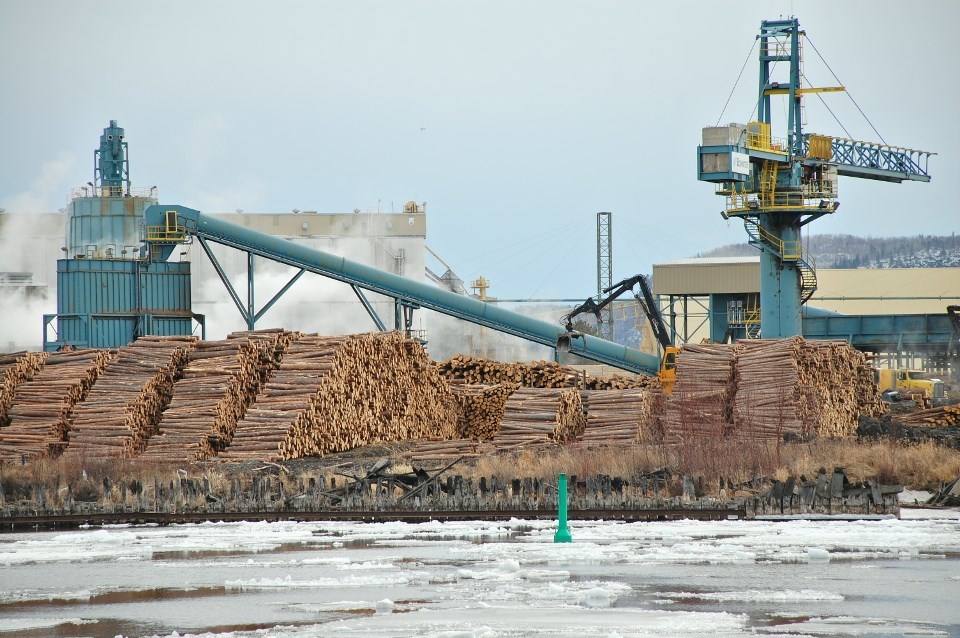A potential developer of a lithium chemical plant in northwestern Ontario has inked an agreement with Fort William First Nation (FWFN), next to Thunder Bay, to identify a suitable refinery site on reserve land.
Toronto's Avalon Advanced Materials has signed a letter of intent with the community to collaborate on the possible construction of a lithium processing plant on Fort William's spacious heavy industrial lands.
The reserve has more than 1,100 acres of brownfield property available, formerly known as the Grand Trunk Pacific Lands, that is being marketed as a development-ready industrial business park.
Want to read more stories about business in the North? Subscribe to our newsletter.
Last November, Avalon announced it was teaming up with Rock Tech Lithium to form a joint venture to study the potential of building a lithium chemical plant in Thunder Bay. The Thunder Bay Community Economic Development Commission was helping them scope out a suitable site.
The proposed facility would accept lithium mineral concentrates from Avalon’s Separation Rapids deposit, north of Kenora, and Rock Tech’s Georgia Lake deposit, south of the town of Beardmore, to produce lithium hydroxide and materials used in making lithium-ion batteries. It's believed that would be the first plant of its type in North America.
Sign up for the Sudbury Mining Solutions weekly newsletter here.
In a news release, Avalon said the next steps are to find a site on the Fort William lands that have all the necessary transportation infrastructure, hydro-electric power and natural gas connections.
After that, there'll be a slew of engineering, site preparation and construction design studies to be done in preparation for the start of construction of a refinery in 2022, once all the necessary permits and approvals are in place. Avalon and Rock Tech also need to secure financing to build the refinery.
Avalon and Rock Tech still find buyers of their product, likely electric vehicle battery manufacturers, that'll factor into the initial design of the refinery and its future scalability.
Avalon anticipates the initial production capacity to be at least 15,000 tonnes per year of lithium hydroxide and/or lithium carbonate as well as lithium sulphate, the precursor chemical for making either the carbonate or hydroxide.
“We are delighted to have the opportunity to create a new precedent for collaboration with Indigenous business toward establishing a lithium battery materials supply chain in Northern Ontario," said Avalon president-CEO Don Bubar in a statement.
"I share FWFN Chief Peter Collins’ vision for how this operation can inspire other Indigenous businesses to become future suppliers of lithium mineral concentrates for the refinery and how FWFN can become the Hub of the North for all First Nation communities in Northwestern Ontario.”
Bubar's company is one of the Ontario government's headliners in showcasing its recently announced critical minerals strategy. It's aimed at promoting the province as a world mining investment destination for electric vehicle manufacturers to source ethically and environmentally responsible minerals used in the clean technology supply chain.
While participating in a recent virtual panel discussion with the Canadian Club of Toronto, Bubar said the leadership of Fort William First Nation had contacted him to consider their industrial lands as the host site.
Bubar talked about how this potential partnership would set a "very powerful new precedent with how industry can work directly with First Nations."
On the exploration side, Avalon is currently taking a 5,000-tonne bulk sample from its Separation Rapids project, 70 kilometres north of Kenora.
The company said 80 per cent of the sample has been trucked to Kenora for storage in preparation for crushing and shipping.
The bulk sample will be used to prepare the processing plan "flow sheets" for potential customers wanting the lithium hydroxide product and for making petalite product samples for interested glass and ceramic customers.




